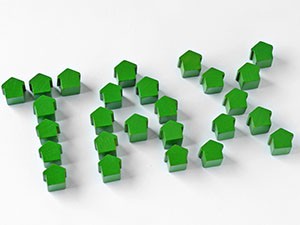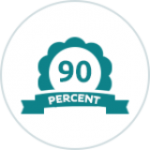Chicago Property Taxes Going Up, But By a Little Less
 Your property tax bill is coming and – it will come as no surprise – it’s going to be bigger than it was last year.
Your property tax bill is coming and – it will come as no surprise – it’s going to be bigger than it was last year.
But here’s what passes for the good news: In Chicago, property taxes are going up by less than they did last year.
The rates, released by the Cook County Clerk’s Office, show that the average property tax bill for homeowners in the city will be about 2.75% higher than last year, or about an extra $110 for the owner of an average single-family residence with a market value of $224,500.
Last year’s tax hike cost that same homeowner an additional $363 – an increase of 10 percent.
Suburban Cook County homeowners however, face bigger hikes than their Chicago neighbors, with north suburban homeowners facing a 3% increase – about $213 more than last year for an average single-family residence valued at $299,100. In the south suburbs, the increase will be 4.78%, an increase of $247 for the owner of a residence valued at $187,500.
The following chart from the clerk’s office provides an idea of what you can expect to pay, based on average composite tax rates and average single-family residence values by area:
Property Tax Changes for Average Single-Family Dwellings by Region
| Tax District | 2016 Average Tax Bill | 2017 Average Tax Bill | $ Change | % Change |
|---|---|---|---|---|
| Chicago | $3,996.34 | $4,106.23 | +$109.89 | +2.75% |
| North Suburbs | $7,118.06 | $7,331.33 | +$213.27 | +3.0% |
| South Suburbs | $5,178.54 | $5,425.93 | +$247.39 | +4.78% |
In Chicago, the tax increases are part of a four-year plan to boost contributions to the city’s underfunded pension plans. But your final tax bill depends on multiple factors including the tax levy of the schools, townships and other taxing bodies in your taxing district, the assessed value of your property, as well as the value of any exemptions for which you are eligible. Increases to the three most common residential exemptions, enacted by the legislature this year, will shift more of the burden to commercial properties and residential properties that are ineligible for these exemptions.
Appealing is Still Your Best Strategy
The tax increases come amid a year of upheaval for the system, which was the subject of both newspaper and academic investigations that found deep flaws in the assessment system and led to a primary defeat at the polls for Cook County Assessor Joseph Berrios. But despite efforts at reform, the best way to be sure you are not paying more than your fair share is to appeal your assessment – both at the assessor’s office, and later at the Board of Review.
This ensures that the most accurate and relevant comparable data goes into the assessed value of your property. At Kensington, we have expertise in building the most effective factual analysis for appeal, along with a proprietary algorithm for establishing the right properties for comparison.
Contact us for a free analysis of your property tax assessment. If we don’t think we can help you achieve a significant reduction in your assessed value, we will not take your case. If we do take your case, you pay nothing unless we help you win. And we usually win. Call now and find out how much you could be saving.




 Over 90% Success Rate on Property Tax Appeals & Protests
Over 90% Success Rate on Property Tax Appeals & Protests No Up-Front Fees
No Up-Front Fees